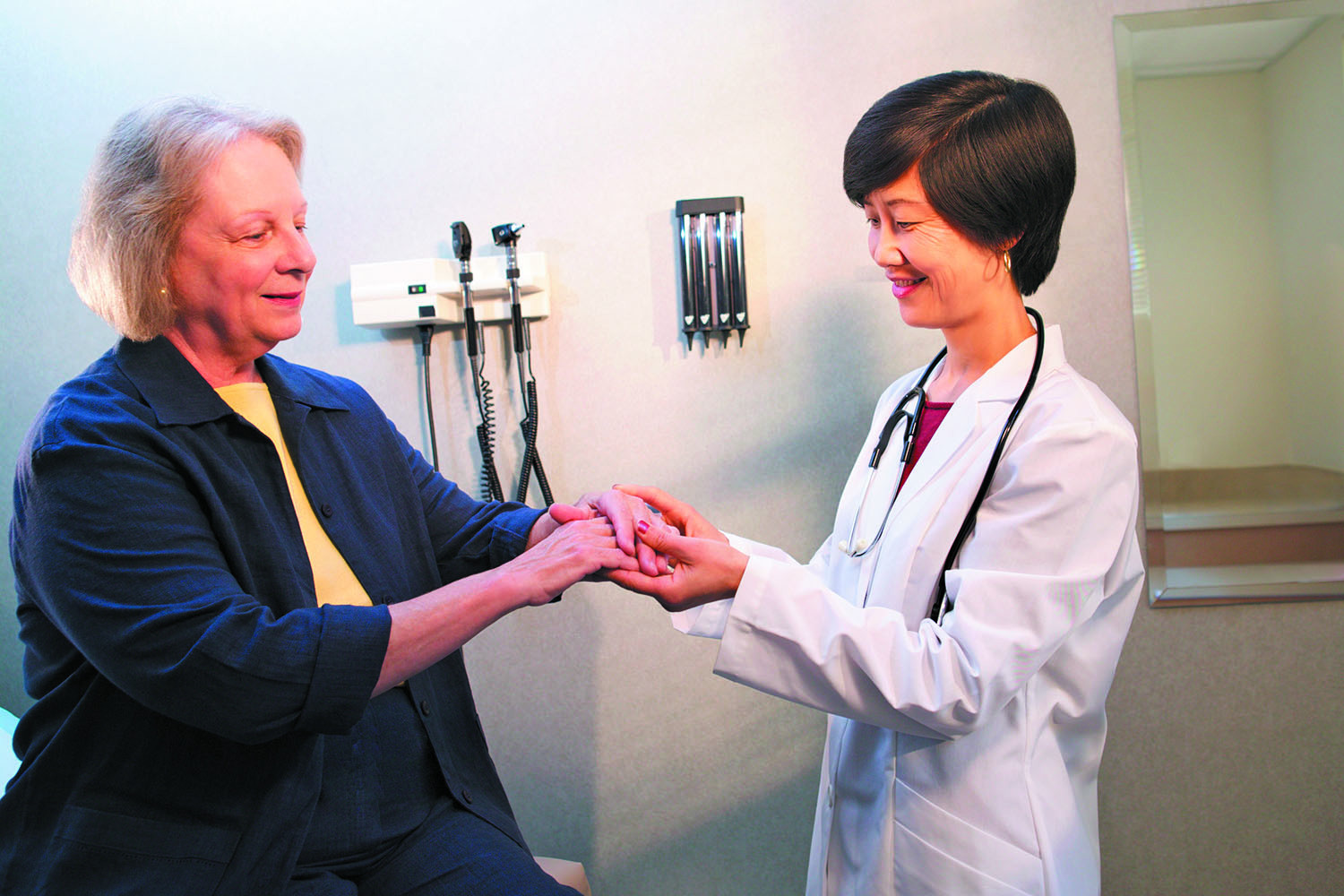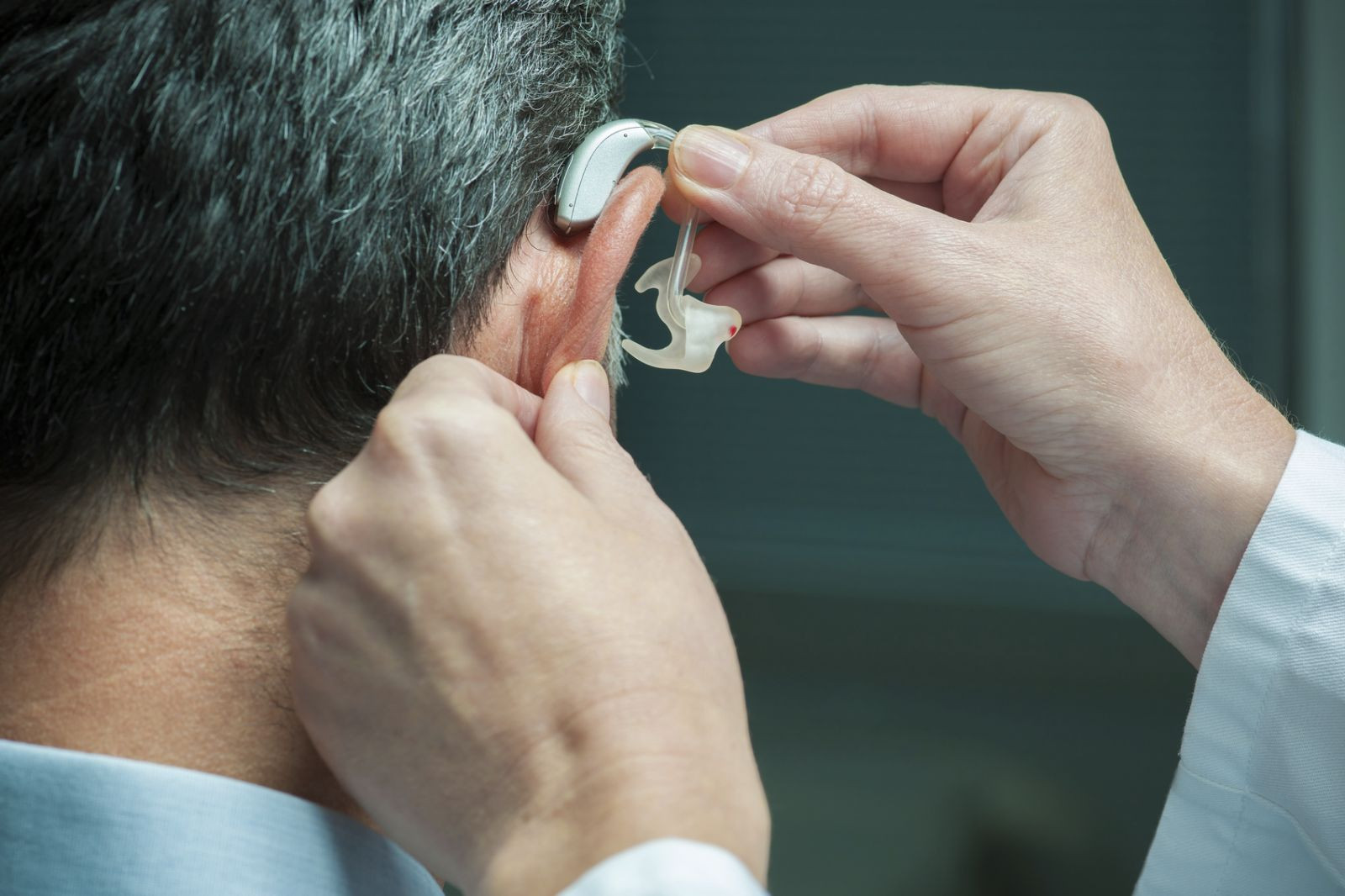
5 timeless habits for better health

What are the symptoms of prostate cancer?

Is your breakfast cereal healthy?

When pain signals an emergency: Symptoms you should never ignore

Does exercise give you energy?

Acupuncture for pain relief: How it works and what to expect

How to avoid jet lag: Tips for staying alert when you travel

Biofeedback therapy: How it works and how it can help relieve pain

Best vitamins and minerals for energy

Should you take probiotics with antibiotics?
Healthcare Archive
Articles
Medicare now covers exercise training for blocked leg arteries
Research we're watching
About 8.5 million Americans have peripheral artery disease, or PAD, in which fatty plaque clogs arteries outside of the heart, most commonly in the legs. The hallmark symptom is calf or thigh pain while walking that goes away when you rest.
The safest, most effective treatment for PAD is supervised exercise training, in which you're monitored while walking on a treadmill. Few people participate, however, partly because of the expense of the regimen. It involves up to 36 sessions of 30 to 60 minutes each over a period of three months.
What’s the best time of year for a flu shot?
On call
Image: © Ildo Frazao/Thinkstock
Q. I always get an annual flu shot, but should I get it closer to the official beginning of flu season?
A. In simplest terms, the best time to get a flu shot is anytime you can. Waiting for the "perfect" time could cause you to procrastinate and miss the benefit of a yearly vaccination against the flu, which prevents 50% to 60% of the influenza infections in a typical season. But if you want to time it so it's closer to the typical flu season, October is ideal.
Tips to find a new doctor
Do your homework and ask questions to find a primary care physician who'll meet your needs.
Image: © Thinkstock
Don't wait any longer if you've put off your search for a primary care physician (PCP). The United States is in the midst of a doctor shortage, and demand will continue to outpace supply, suggests the Association of American Medical Colleges. In March, the group projected a shortfall as high as 43,000 PCPs by 2030, fueled by an aging population.
The time to establish a relationship with a PCP is sooner and not later, but not just because you need to stake your claim on a doctor. "There are a lot of things that sneak up on you if you don't go for regular check-ups. For instance, you won't know if your blood pressure is creeping up, or you may not know if it's time to get important cancer screenings," says geriatrician Dr. Suzanne Salamon, an assistant professor at Harvard Medical School.
Easy ways to spot health scams
Marketing terms like "cure" and "miracle" can alert you to bogus treatments.
Image: © MaryValery/Thinkstock
We all want a magic pill to make aches and pains go away. But that longing sometimes makes us vulnerable to health scams. These come in the form of untested remedies promising to treat or cure everything from arthritis to aging. "From my experience, some older adults fall for the scams that focus on issues where there really is no good medical treatment or cure, such as Alzheimer's disease, arthritis, or cancer. The vulnerability comes in because people are looking for hope," says Dr. Anthony Zizza, a geriatrician at Harvard-affiliated Beth Israel Deaconess Medical Center.
Warning signs
The first tip-off to a health scam is often the way a product is described. Be wary of words used in marketing claims, such as quick fix, miracle, secret, cure, and breakthrough—and anything that promises to relieve your medical problems. "You might see something that says 'Take this pill and you'll reverse memory loss,' but don't believe it," says Dr. Zizza. Other clues include the terms no-risk, money-back guarantee, free gift included, or limited supply.
Stay healthy at the hospital
Protect yourself to ensure a speedy recovery and avoid infections and readmission.
Image: © Monkey Business Images Ltd|/Thinkstock
Whether you go in for surgery, testing, or an outpatient procedure, your hospital stay can pose further health risks if you are not careful.
"Your potential risks depend in part on why you have to go into the hospital and the facility itself, but there are steps you can take to minimize your risk, especially when it comes to developing hospital-acquired infections that can lead to a longer hospital stay or readmission," says Dr. Erica Shenoy, an infectious diseases specialist and associate chief of infection control at Harvard-affiliated Massachusetts General Hospital.
Should you have an annual pelvic exam?
By Hope Ricciotti, M.D., Editor in Chief
If you've come to expect a pelvic exam as a routine part of your annual well-woman physical, you may be surprised to learn that health experts disagree over whether it is necessary. The exam — in which the clinician inserts gloved fingers into the vagina to examine the cervix, uterus, and ovaries — has been routine for decades, but recently its benefits have been called into question.
In 2014 the American College of Physicians — an influential group of internal medicine specialists — issued a recommendation against routine pelvic examinations for women who aren't pregnant and have no unusual risk for or symptoms of pelvic diseases. However, the American College of Obstetricians and Gynecologists (ACOG) has stood by its longstanding policy recommendation — annual pelvic exams for women ages 21 and older — based on expert opinion. In March 2017, the U.S. Preventive Services Task Force — the pre-eminent medical guidelines organization — ruled that there is insufficient evidence to recommend either for or against annual screenings.
Easier access to hearing aids
The FDA announced in December 2016 that it would no longer enforce the requirement that adults receive a medical evaluation or sign a waiver prior to purchasing most hearing aids.

5 timeless habits for better health

What are the symptoms of prostate cancer?

Is your breakfast cereal healthy?

When pain signals an emergency: Symptoms you should never ignore

Does exercise give you energy?

Acupuncture for pain relief: How it works and what to expect

How to avoid jet lag: Tips for staying alert when you travel

Biofeedback therapy: How it works and how it can help relieve pain

Best vitamins and minerals for energy

Should you take probiotics with antibiotics?
Free Healthbeat Signup
Get the latest in health news delivered to your inbox!
Sign Up











